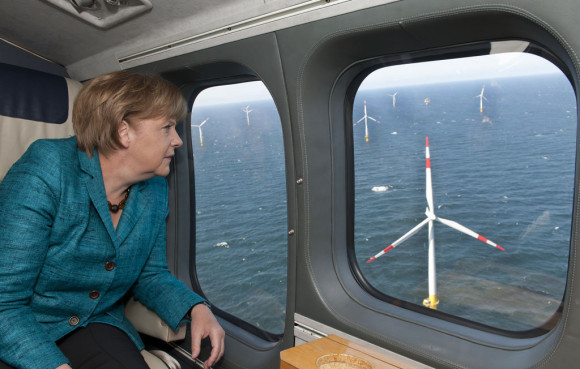Already, 25 percent of German energy comes from renewable resources, but that advance has come at a cost to consumers, who have borne the brunt of the surcharges that funded the expansion.
Keeping power prices in check is a key element of the government’s revised policy, even as it upholds exemptions for crucial industries that require high amounts of energy.
“Restart means no longer following the illusion that the energy transformation can be achieved by expanding renewable energy as quickly as possible, but to make sure that the expansion will be safe and predictable,” Sigmar Gabriel, the energy and economics minister, said in announcing the changes to the legislation, the Renewable Energy Sources Act.
In addition, Mr. Gabriel said Berlin had reached an agreement with regulators in Brussels, who had challenged the exemptions on the grounds that they violated competition laws within the European Union.
That deal was not reached in time to be included in the draft approved on Tuesday, but will be included in the package before it is put to vote in Parliament that is expected before the August recess.
The broad coalition government of Ms. Merkel’s Christian Democrats from the right and the Social Democrats from the left intends that the revisions will reboot a renewable-energy policy adopted more than a decade ago.
Energy prices have risen each year since 2000 to among the highest in Europe, and the policy could lose its popular support if the prices continue to rise.
While Mr. Gabriel said he could not promise that energy prices would go down, he said the goal of the changes was to put the brakes on further increases by scaling back green subsidies and limiting the expansion of onshore wind and solar capacity. Only 2.5 gigawatts of wind and solar can be added each year, while offshore wind expansion will be capped at 6.5 gigawatts by 2020.
Starting in 2017, the renewables market will be subject to competitiveness, and providers will no longer enjoy the guaranteed prices that have helped to spur the expansion of wind and photovoltaic since 2000.
Environmentalists criticized the proposed limitations as a step in the wrong direction that placed the cost burden too heavily on consumers, while upholding rebates for major industry.
“If you really want to lower the price of electricity for consumers, the expansion of renewable energy should not be limited, but the costs have to be shared more fairly,” said Hubert Weiger, head of the environmental group BUND.
Key German industries have repeatedly expressed concern that the rapid and costly expansion of renewables could undermine the strength of country’s industrial base, ultimately putting 800,000 jobs at risk.
The German government responded by exempting energy-hungry companies from the surcharges. But the European Commission, the European Union’s executive branch, challenged the exclusions as posing an unfair advantage to companies doing business in Germany as compared with elsewhere in Europe.
After months of wrangling, Brussels and Berlin agreed to a deal that will see some 400 of the previous 2,100 companies forced to relinquish their exemptions.
Nevertheless, Mr. Gabriel said, industries will contribute about 7.4 billion euros, or $10.2 billion, to the price of the transformation, while consumers will pay about €8 billion.
“If we don’t want to lose jobs, we have to make sure that our companies remain competitive,” Mr. Gabriel said. “This is about hundreds of thousands of jobs.”


